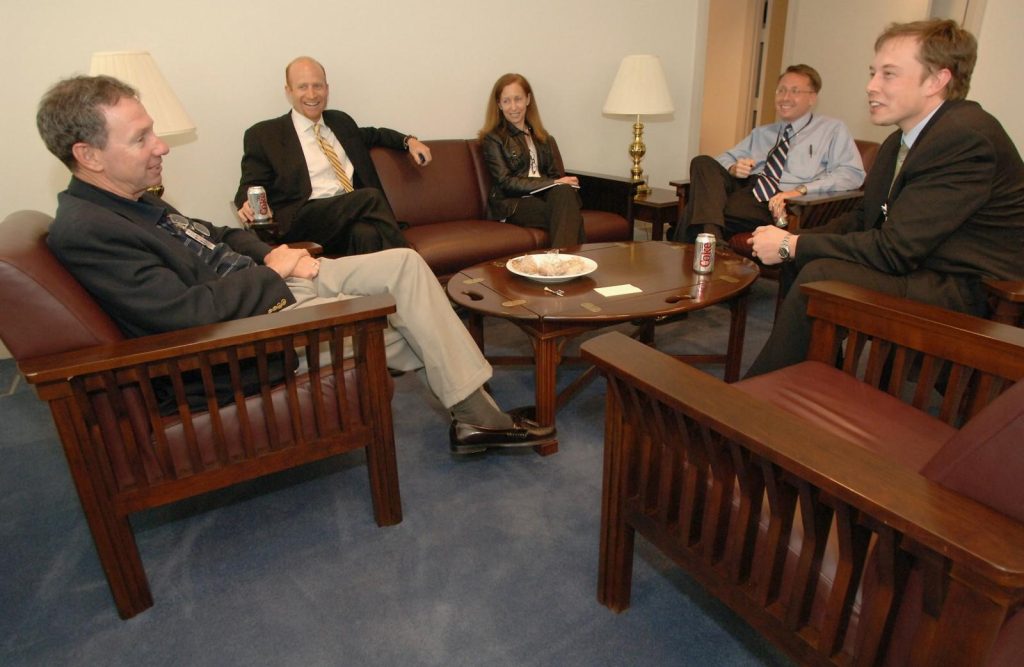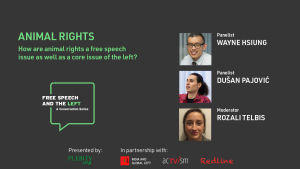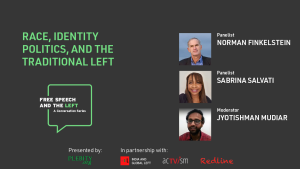
Image credit: Daniel Oberhaus (2018). (CC BY 2.0)
The mediasphere has been buzzing with the news of Elon Musk’s Twitter takeover. The world’s richest man bought the platform for $44 billion under the guise of freeing the platform from the shackles of censorship and creating a ‘common digital town square.’ It should be noted that just weeks ago, Musk was desperately trying to back away from the deal, but a lawsuit eventually forced his hand.
The reaction to the news has ranged from sensible criticism to outright hysterics from all sides. Musk’s insufferable fanboys celebrated the move, elevating him to God-like tier status. To them, he is a savior who will do everything from reforming the Internet to saving humanity as we know it.
As soon as the acquisition was announced, Musk’s fans claimed that Twitter was suddenly ‘free’ again, even though Musk later clarified that he had not actually made any content moderation changes yet.
Then there’s the equally hysterical anti-Musk camp that is losing their minds over the move. Washington Post journalist Taylor Lorenz tweeted ‘the gates of hell opened’, evidently unaware of her own ability to freely tweet her criticism without consequence. Journalist Jeff Jarvis tweeted, ‘the sun is dark.’ Another writer even said the acquisition has an “apocalyptic feel to the ordeal.” Some are screaming into the void threatening to leave the platform while continuing to tweet on the very platform they are threatening to leave–and it’s all because the platform has simply exchanged hands from one wealthy businessman to another. The influx of people threatening to leave is reminiscent of when Americans threatened to move to Canada when Trump became president. We didn’t see any mass migration then, and I suspect we won’t be seeing much of a huge exodus on Twitter, either. One podcaster asked, “Can someone make a new Twitter or is this a very stupid question?” Yes, it is a stupid question, because many decentralized platforms already exist, but people would rather complain and do nothing instead.
Both sides have coalesced into one large outrage machine where they have dulled the voices of everyone else.
As it goes, the truth falls somewhere in between.
In April, Elon Musk said “Free speech is the bedrock of a functioning democracy, and Twitter is the digital town square where matters vital to the future of humanity are debated.”
Many people can agree with this, but can Musk actually make this a reality?
In short: No, because Elon Musk does not actually care much for free speech, or democracy for that matter.
Musk has a long history of silencing dissidents and critics, whether it be firing a Tesla employee who posted a video of a Tesla accident; allegedly hiring someone to spy on a Tesla whistleblower; or firing Tesla workers for trying to unionize or even disagreeing with him, Musk does not shy away from punishing his critics.
But many of his fans ignore the above because Musk has carefully cultivated this persona that he is not part of the establishment at all—that he is an independent free speech absolutist who has no ties to corporate or government entities.
In reality, Musk is just as part of the established order as the entities he criticizes.
Musk has close ties to governments all around the world. This year, SpaceX was awarded a $102 million Air Force contract for the Department of Air Force’s fourth Vanguard rocket cargo program. In 2021, SpaceX launched the Lockheed Martin GPS system into orbit. SpaceX has become an important tool to keep the war machine going with its close relationship to US-based defense contractors.
Mike Griffin, the former President and COO of In-Q-Tel, a CIA-funded entity, also directly served as a role model and quiet partner to Elon Musk in the early aughts. In 2002, the year SpaceX launched, they traveled to Russia where Musk tried, but failed, to buy Russian intercontinental ballistic missiles. Griffin even called Musk a potential “Henry Ford for the rocket industry.” Griffin later helped Musk secure a number of government contracts, including in 2006 when NASA awarded SpaceX with a $396 million rocket development contract under Griffin who headed NASA at the time.

NASA Administrator Michael Griffin, left, meets with CEO of SpaceX Elon Musk, right, Wednesday, April 20, 2005 at NASA Headquarters in Washington (Public Domain)
Musk’s other venture, Tesla, also receives substantial backing from governments. In 2010, the company received a $465 million loan from the US Department of Energy. Now governments all around the world are providing incentives for automakers to produce electric vehicles (EVs) in return for credits. Since Tesla exclusively sells electric cars, it receives credits for free and then sells them at a huge profit. Tesla also receives credits for its environmentally destructive Gigafactories. Tesla’s Gigafactory in Texas alone received state and local tax breaks totalling some $64 million USD. Other Gigafactories received similar tax breaks. If not for these government credits, Tesla’s future would be uncertain, and it may very well have withered long ago.
Musk worked with the US government to donate thousands of Starlink terminals to Ukraine, with the purported goal of helping its people come back online. However, the donation wasn’t actually a donation —while Musk said the Department of Defense didn’t pay him, a number of other governments and organizations did, he confirmed. Starlink became a critical tool in helping Ukrainian forces, including the neo-Nazi group Azov battalion, target Russian forces and maintain communication. Musk, however, disagrees that the Azov battalion are Nazis at all.
Musk is clearly not an objective party, and his ties to the government raises concerns on how he would achieve his goals of nurturing the digital town square.
Musk claims to support democracy, but his position is inconsistent with his actions.
When making the Twitter purchase, Musk had to rely on other investors to secure the deal. Saudi Arabian Prince and CEO of the Kingdom Holding company Alwaleed bin Talal made the decision to continue ownership of nearly 35 million shares valued at $1.89 billion. This makes the Saudi company the second largest investor of the platform. This move raises questions about how Musk would actually push his free speech agenda and promote democracy when Saudi Arabia routinely stifles free speech and punishes its citizens for speaking out against the regime.
Musk also has long-standing ties to the Chinese Communist Party (CCP). He has consistently complied with China’s requests in regards to Tesla vehicle production demands–he has no choice but to comply because China accounts for much of Tesla’s global sales. Last year, Musk praised China’s ‘economic prosperity’ on the 100th anniversary of the founding of the CCP. China even offered Musk permanent residency. It’s clear that Musk does not operate solo, and his global partnerships have rendered him unable to freely behave in a way that might potentially undermine his goals.
How can we reasonably have faith in someone who claims to be committed to free speech while simultaneously receiving financing from global authoritarian entities? How will Musk’s personal beliefs and corporate and government partnerships impact his ability to make rational content moderation decisions?
The second aspect of this Twitter takeover that is being overlooked is that Twitter’s interface simply does not allow for a reasonable exchange of ideas.
The belief that a reasonable exchange of ideas can occur in bite-sized text is naïve at best. How can we facilitate an environment for good faith discourse when the platform itself does not support this? The entire platform must be overhauled if this is indeed the goal. Twitter’s very limitations does not leave room for nuanced discourse, and this is a feature not a bug.
Big Tech companies only ever have power because we willingly give it to them. Decentralized open source networks do exist. If users were serious about free speech, they would have found a new digital platform that supports it instead of clinging to any purported anti-establishment hero to save them.
The hysteria surrounding Musk’s takeover is entirely misplaced. Musk is not a rebel; he is not anti-establishment, and he does not represent the interests of everyday people. He is not anti-elite; he is the elite.
Free speech is critical to a thriving democracy, but having a billionaire control one of the largest social networks isn’t the way to do it. If Musk actually wants Twitter to be a flourishing digital town square, it should not be up to him to facilitate, especially given his checkered history of silencing those who disagree with him. Public squares should be owned by the public, not for-profit entities controlled by the richest people in the world.



